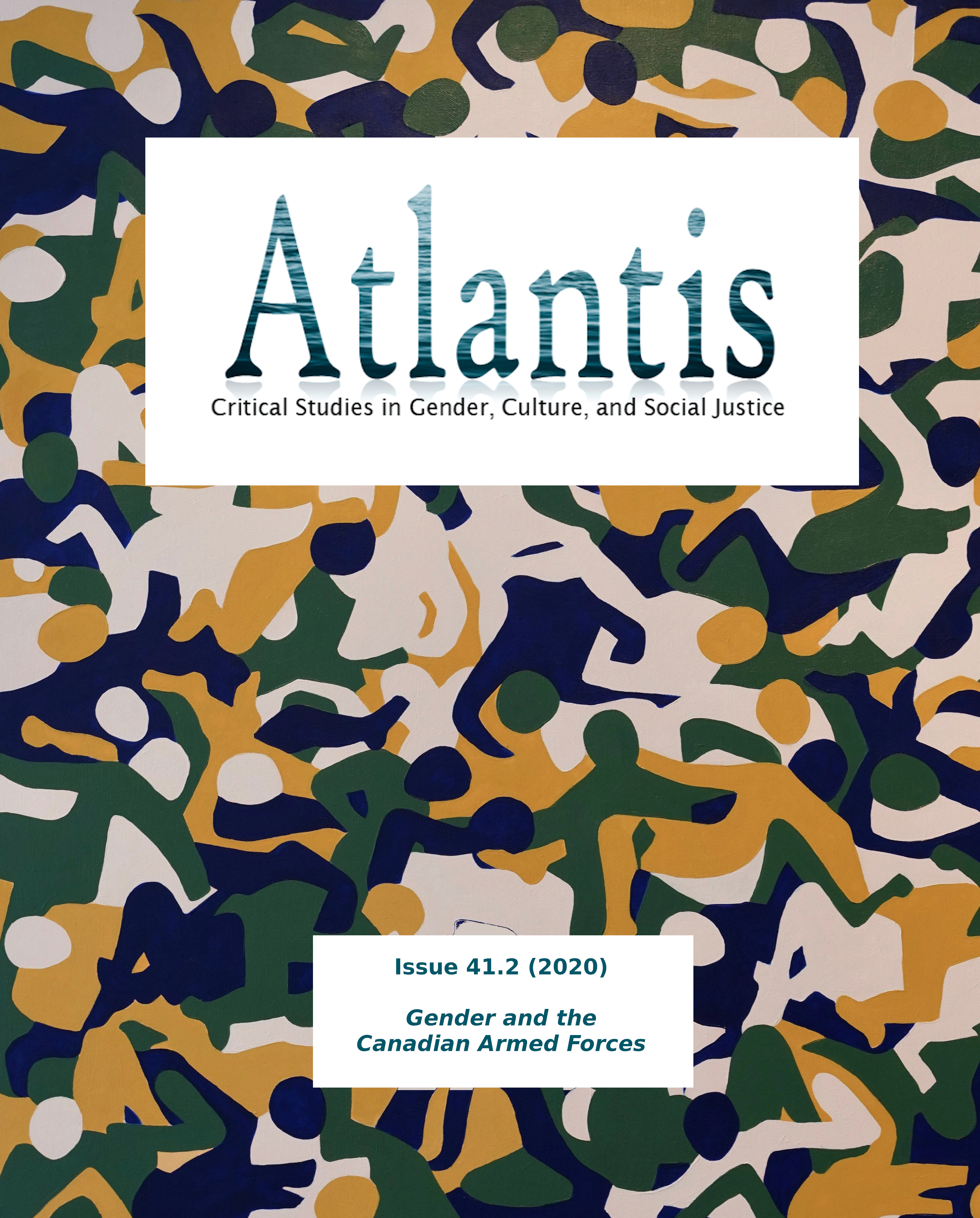Troubling Diversity and Inclusion: Racialized Women’s Experiences in the Canadian Armed Forces
Keywords:
Canadian Armed Forces, diversity and inclusion, gender, intersectionality, raceAbstract
This article centers on the lived experiences of racialized servicewomen in the Canadian Armed Forces (CAF). Drawing on qualitative interviews with racialized servicewomen, I problematize the function of contemporary diversity and inclusion initiatives within the CAF. Focusing on the intersection of race and gender in their lives provides a way to think through structural inequities within the Canadian military. By examining how these structures of power operate within the CAF, we are better situated to understand how current diversity and inclusion initiatives work to consolidate hegemonic power. Informed by feminist critical race theories and critical geography, I trace the experiences of racialized servicewomen to understand how they make sense of their inclusion and belonging and how they assess their everyday experiences in the context of diversity and inclusion strategies presented by the CAF. Their lived experiences reveal the importance of race and gender in their lives, and expose the limits of diversity and inclusion practices, particularly, in their inability to address deeper structural issues of white supremacy, heteronormativity, and patriarchy within the CAF. While concepts of diversity and inclusion are typically concerned with the inclusion of those on the margins, this research suggests that we must seriously interrogate the theoretical, practical, and political work of diversity and inclusion initiatives within a multicultural context. Troubling inclusion and diversity in the CAF demands we disrupt structures of dominance and reflect on how to re/conceptualize and re/integrate meaningful difference more substantially throughout institutional life in multicultural Canada.
Downloads
Published
Issue
Section
License
Copyright (c) 2020 Tammy George

This work is licensed under a Creative Commons Attribution 4.0 International License.
Authors who publish with this journal agree to the following terms:
1. Authors retain copyright and grant the journal right of first publication, with the work simultaneously licensed under a Creative Commons Attribution 4.0 International License that allows others to share the work with an acknowledgement of the work's authorship and initial publication in this journal.
2. Authors are aware that articles published in Atlantis are indexed and made available through various scholarly and professional search tools, including but not limited to Erudit.
3. Authors are able to enter into separate, additional contractual arrangements for the non-exclusive distribution of the journal's published version of the work (e.g., post it to an institutional repository or publish it in a book), with an acknowledgement of its initial publication in this journal.
4. Authors are permitted and encouraged to preprint their work, that is, post their work online (e.g., in institutional repositories or on their website) prior to and during the submission process. This can lead to productive exchanges, as well as earlier and greater citation of published work. Read more on preprints here.







